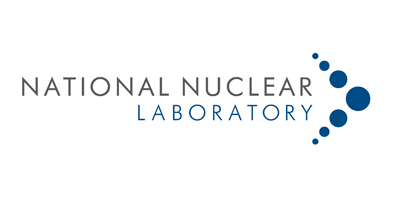NNL unveils transformative nuclear for Net Zero modelling
National Nuclear Laboratory (NNL) has published a ground-breaking new modelling report demonstrating the role nuclear can play in delivering the UK’s net zero goals.
This is the first time that such diverse, scalable and low-cost applications for nuclear technologies have been fully represented across the whole energy system. By including such a range of applications for nuclear technology within the model – which in itself is innovative by assessing the whole energy system, not just the power sector – this work reveals potential routes to de-risk and lower the cost of achieving net zero.
The modelling, which was conducted with independent specialists from Energy Systems Catapult and LucidCatalyst, considers the whole energy system on the path to net zero. This includes the role of nuclear in providing not just electricity but also heat, hydrogen and synthetic fuels. This work was completed through the £46m Advanced Fuel Cycle Programme (AFCP), which is led by NNL in partnership with the Department for Business, Energy and Industrial Strategy (BEIS) as part of the £505m Energy Innovation Programme.
By adding to the national and international dataset that considers pathways to decarbonisation, this modelling provides government and industry with crucial information to support their decision-making. It has already been used to underpin AFCP’s net zero roadmap, which will be published later this year.
Dr Fiona Rayment, Chief Science and Technology Officer of NNL, said:
“To enable the deep decarbonisation that is required to meet net zero, it is clear that we need to completely and utterly transform the totality of our energy system. The challenge our sector needs to overcome is not technical, but economic; by co-generating zero-carbon electricity with a new supply of green hydrogen, fuels and heat, nuclear can make a vital, and commercially viable, contribution to the UK’s future energy mix.
Until now, full UK energy system modelling showing the role of nuclear beyond the generation of electricity – including hydrogen and synthetic fuels – has not existed. This first-of-its-kind study adds considerably to the developing database of future UK energy system scenarios and provides evidence needed by decision-makers to inform future UK energy strategy and policy.”
Scott Milne, Head of Insights at Energy Systems Catapult, said:
“Our analysis shows that to meet net zero in the UK we need to vastly increase the production of three zero carbon energy vectors – electricity, hydrogen and district heating.
The modelling we performed for NNL explores the cost and performance parameters that would need to be achieved by a range of nuclear technologies in order to contribute – alongside renewables and carbon, capture & storage – to the rapid scale-up of those three energy vectors.
Across the range of technology options explored in the modelling, the ability to deliver flexible co-generation of multiple energy vectors from individual reactors, offers particular value. Our analysis shows how nuclear can help to minimise the overall physical footprint of the energy system and contribute to achieving net zero at least cost to society.”
Kirsty Gogan, Managing Director at LucidCatalyst, said:
“This modelling presents valuable new insights for the UK’s net zero transition. These opportunities were either grossly under-represented in – or completely absent from – previous energy system modelling. Including their transformative potential offers a radical new perspective on our prospects for affordable and rapid decarbonisation.”
Eric Ingersoll, Managing Director at LucidCatalyst said:
“If we can produce clean drop-in substitute fuels at scale, this reduces the extent of transformation required. This is a major benefit in terms of lowering the overall investment, disruption and behaviour change required to maintain energy services. Essentially, this offers an opportunity to decouple energy from emissions without increasing cost or decreasing performance.”
Download the modelling report on NNL’s website and read more about its key findings – including its significance to AFCP’s Futures Roadmap outcome – in a blog from AFCP’s Technical Director, Paul Nevitt.

